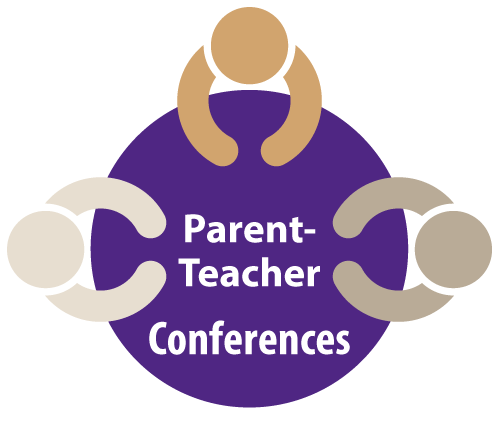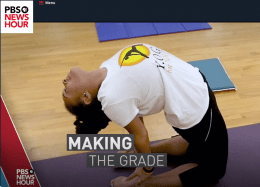Lori Goodson, Editor
Mary Hammel, Technical Editor
Category: September 2019
Build relationships with students through other duties
 Outside your classroom, you’ll find that you’re asked, or possibly required, to take on other duties around your school. Some of the more common tasks: bus duty (before and/or after school), gym supervision (before and/or after school), lunch supervision, and recess. Plus there are all the club sponsorships available at the various grade levels.
Outside your classroom, you’ll find that you’re asked, or possibly required, to take on other duties around your school. Some of the more common tasks: bus duty (before and/or after school), gym supervision (before and/or after school), lunch supervision, and recess. Plus there are all the club sponsorships available at the various grade levels.
Before you say no—or at least grumble a little about it—look at the opportunities these extra duties provide.
At the middle level, you might find yourself supervising bus duty; that can give you a chance to hang around the elementary students as they leap off the last step on the bus, headed home after a busy day. You may end up tying a very small shoe now and then or helping adjust a tiny mitten in the wintertime, but you’ll also flash back to your own elementary school days…and remember just where your own students came from not so many years ago.
At the elementary level, you may get to see some of your students bounce into their parents’ arms at the end of the school day—bubbling about what they did in your class today.
At the high school, the bubbling may be minimal, but you’ll be in a more relaxed atmosphere as your students climb into their cars and head out for the day.
Lunch duty can provide an opportunity for you to mingle with the student body—some students you may not even have in class. It’ll give you a chance to visit with them—about food, interests, and…yes…even school-related matters.
All of these opportunities can be powerful relationship builders for you and your students, especially when you’re a new teacher trying to make connections and get comfortable in the environment.
Make the most of them.
In the classroom: Alexis McCormick

Name: Alexis McCormick
School district: Manhattan Ogden–USD 383
City/State: Manhattan, KS
Class/content area taught: STEM 3rd-6th Grade
What you are most excited about with your new career: I am most excited to be able to impact so many futures, I work with half of the student body, and I am able to make so many connections with the students. As well as teaching a subject that is preparing students for future career paths.
What you enjoy most about teaching: I enjoy the community of new teachers at my school, there are many of us and having a friend to rely on when times get tough, but what I enjoy the most is the hugs and smiles of my students.
Ways your school/district has supported you: My principal has made this transition into teaching unbelievably comfortable; she supports us and is always there to answer any questions that we have. The district is incredibly positive and it is nice to know that everyone’s heart and head is in this for the right reason.
Ways KSU especially helped prepare you for your new career: I feel that K- State prepared me for this career by providing incredible mentors through our professors. I learned early on the best way to do this job is to give 100%, but also remembering you cannot give 100% without taking care of yourself. The relationship between peers and professionals greatly helps with the transition into a career, and I felt very ready for all that has come my way so far
Specifics about your background that make teaching the perfect fit for you: I would not say that I come from a long line of teachers, but I come from a family who gives all that they have to the community. My mother is the owner of Manhattan locally owned business G. Thomas Jewelers, and her presence in the community through charitable giving and actions inspired me to want to affect change. My step-father is a lieutenant at the local police department, and he works to make the community a safe place for all who live, work, and travel to the community. I was inspired by my parents, as well as my grandma who was a teacher, and then worked in the K-State College of Education. She inspired me to believe the best way to make a change in the world is to love the kids first. Through all of these wonderful role models, I have become a teacher, and I am proud of the future that lies ahead of me.
Suggestions/encouragement for new teachers: Breathe. This career is what you are made for. Relax and let things fall into place, and ALWAYS, ALWAYS be a life-long learner.
Click here for good ideas
The COE’s Department of Curriculum and Instruction is looking out for you! Here are some links our colleagues believe provide some useful ideas as you get settled into your new profession:
Beating the Stress of the Classroom
Special thanks to Mrs. Lou Ann Getz for providing several of these links!
Planning ahead…for a sick day
 In your first few weeks of teaching, you’ve probably not even thought of the possibility that you might miss a day of teaching. However, the time will come—due to your being sick or an illness in the family, an emergency, or even a professional development opportunity supported by your school—that you will be absent from your classroom for a day or more.
In your first few weeks of teaching, you’ve probably not even thought of the possibility that you might miss a day of teaching. However, the time will come—due to your being sick or an illness in the family, an emergency, or even a professional development opportunity supported by your school—that you will be absent from your classroom for a day or more.
It’s better to be prepared for it, rather than wait for that opportunity to present itself—possibly as stomach flu at 4 in the morning.
Some schools have folders that their teachers use for substitute plans, or possibly a sheet that includes the basic information of your teaching duties. But you’ll want to be a little more prepared than that, so you’ll probably want to set up your own Substitute Plans folder and keep in your desk in a specific place.
Consider adding the following to your personal “sub” folder:
- Your daily schedule (including times, lunch and plan periods, etc.)
- Lists (and directions) of any other rooms where your substitute would need to be.
- General school daily schedule (hours/blocks/etc.).
- General school lunch schedule.
- Emergency drill plans (map, directions, etc.)
- A list of key contacts and their telephone extension numbers.
- Easy access to class rosters (with notes of any special needs or concerns for specific students).
- Seating charts, if applicable.
- A brief sentence summarizing the purpose of the class.
- A list of information about each class—approximate number of students, any paraprofessionals or other educators who assist with the class.
- For classes with older students, a list of responsible, go-to students they can count on for help.
- Your phone number or email if they should need to contact you.
- Blank notebook pages—so they can easily leave you notes about the classes and any concerns or updates that they’d like to share.
- A list of where they can find key materials.
- Some untimely—but educationally appropriate—assignments that the substitute can use to fill time, as needed.
By having this general information already prepared, when the time comes for you to be absent, you’ll only need to write the specific activities for that day.
For those daily activities, if your absence is unplanned due to an illness or emergency, email the specific directions to the office assistant and to another teacher, as a backup. Be sure to point out the location of your substitute folder. Otherwise, have a copy printed out ahead of time and left on your desk.
The easier you can make it for the substitute, the easier your return will be…and the less worrying you’ll do during your absence. Trust me, the stomach flu…or the PD opportunity…will demand ALL of your attention!
Follow the procedures
You’ve heard it before, but after a month of teaching, you might want a quick reminder. Here are a few ideas on why procedures can help you have a more effective classroom so you can get to the task of teaching, rather than disciplining. There’s plenty on the Internet about this, but here are a couple of favorites that make some key points for whatever grade level you’re teaching:
Bring on the parents!
 Even the most veteran of teachers can find Parent/Teacher conferences a little uncomfortable, but being prepared will help you make the most of this important opportunity. So let’s get prepared by considering the following:
Even the most veteran of teachers can find Parent/Teacher conferences a little uncomfortable, but being prepared will help you make the most of this important opportunity. So let’s get prepared by considering the following:
BEFORE THE CONFERENCES
- Have meaningful grades in your grade book so you can talk about the child’s progress.
- Take time to get to know each student so you can demonstrate at the conference that you’ve made a personal connection with the student.
- Learn as much as possible about the process for parent/teacher conferences. Some schools require that the student take an active part in the discussion, so make sure your students are prepared, as well.
- Compile (or have your students compile) folders of their work to share with their parents/guardians. Include writings, assignments, assessments, and artwork to showcase their learning so far this year. You may want to add other items, such as grades, assessment results, and other items to share, as well.
- Find out what materials and information teachers traditionally share at the conferences, since it can vary greatly from school to school and district to district.
- Know the details of the conferences—when, where, guides on how much time to spend with each student’s parent/guardian, when to suggest an individual meeting to have more extensive discussions, etc.
- Prepare a flier with important upcoming dates, a list of needed classroom items if they would like to contribute, and a brief look at upcoming important dates to help them be involved in their student’s education.
AT THE CONFERENCES
- Step No. 1: Smile and introduce yourself. Be the first to offer a handshake.
- Realize that the parents/guardians are taking time from their busy schedule to visit with the child’s teachers. Since we encourage family involvement in their child’s education, we need to appreciate their efforts. Be sure to thank them for attending.
- Make comments about concerns and accomplishments specific to that student.
- Provide specific ideas on areas where you’d like to see the student improve; provide specific suggestions on how the parent/guardian can help make that happen.
- Be prepared to answer if a parent or guardian asks when he or she can do to help. That’s a golden opportunity you don’t want to overlook. Many times parents want to help, but they’re unsure just how to do that.
- Make sure they know you value their input; provide additional contact information, and encourage them to contact you with any concerns or ideas.
- Keep track of which students have individuals attending the conference on their behalf. Many schools provide a sign-in sheet; if not, consider creating a roster so you’re aware of who attended and who didn’t.
- Review the list and consider making a personal effort to get parents/guardians of students you’re especially concerned about to set up an individual appointment with you.
- Following the conferences, briefly thank your students for having their parents/guardians attend the conferences. However, don’t overdo this; in many cases, the students can’t help it if the adults in their lives decline the opportunity to attend the conferences.
EDCATS: Join our network

Don’t miss a thing this fall! Be a part of EdCATS!
We want to help beginning and early career teachers like you thrive in your career! Check out #WeAreEdCats for teaching tips and to stay in touch with the COE! Check out the website at coe.k-state.edu/forever-edcats.

